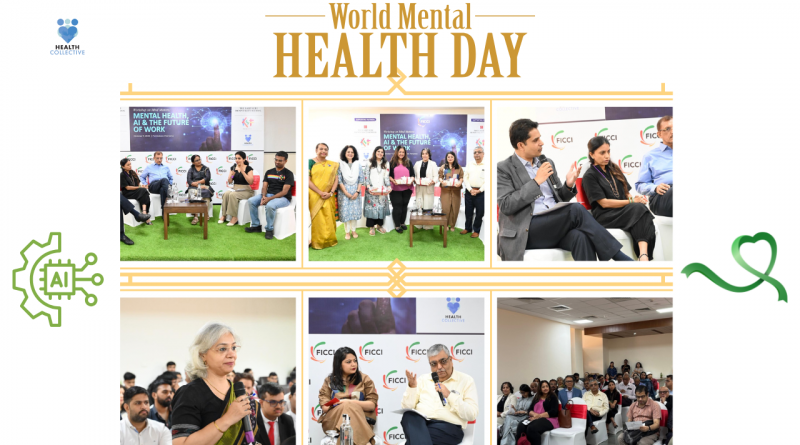GenAI and Mental Health: Why You Need to Listen Up
Team Health Collective
This year for World Mental Health Day, we decided to focus on topical issues that we all need to pay attention to. Enter the wonderful collaboration with FICCI (under the aegis of FICCI DE&I Committee), the Keshav Suri Foundation and the LaLit Suri Hospitality Institute. We had two engaging panels, and were joined by leaders from across sectors.
TL;DR The clear consensus was that we need to be mindful and intentional of all the uptake of Tech and GenAI given the very real potential for real-world harm; and for leaders and organisations to not forget the “human-ness” at the centre of all our connections, in this Age of Turbulence.
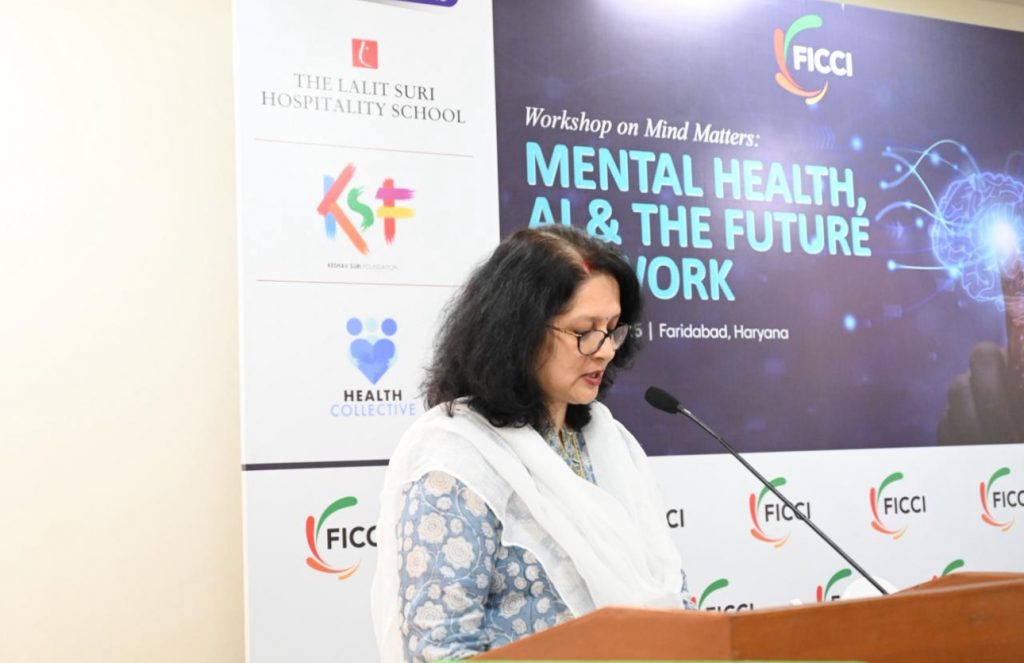
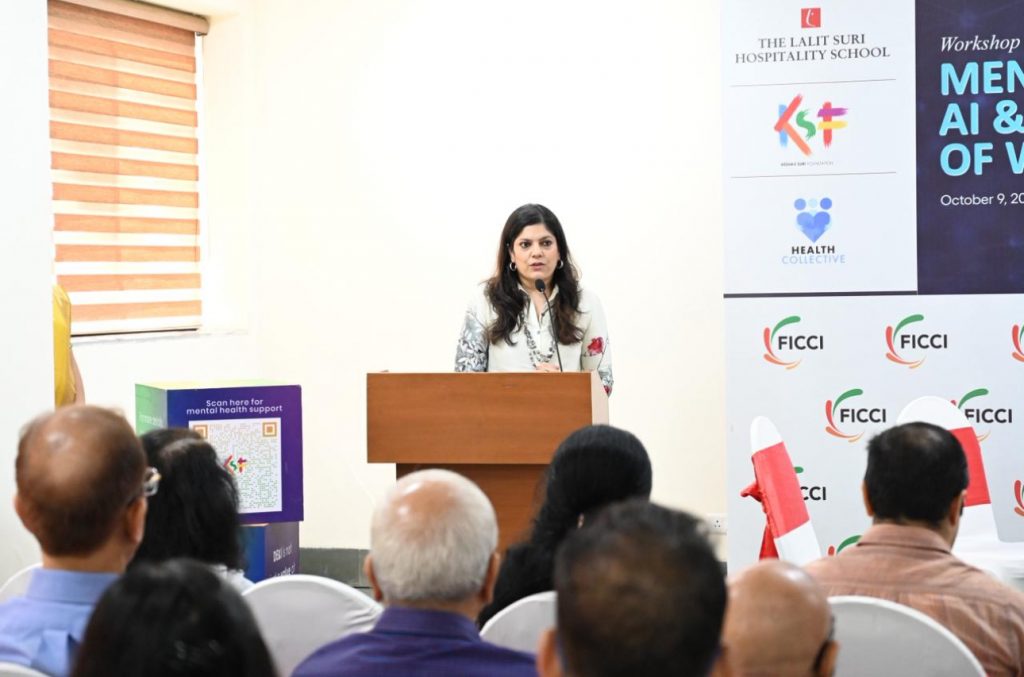
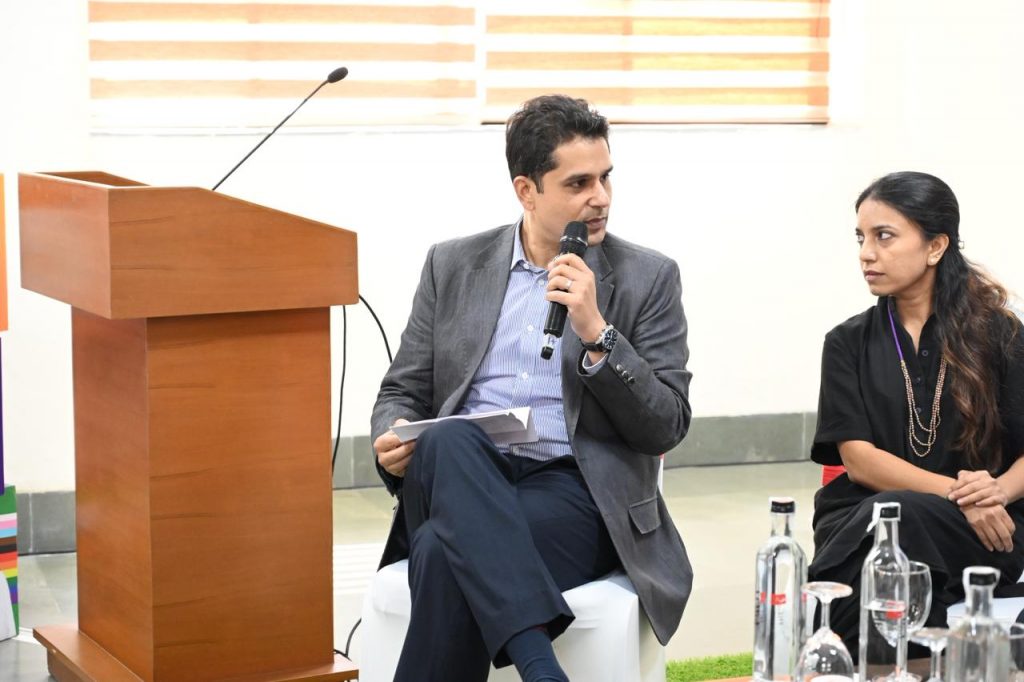
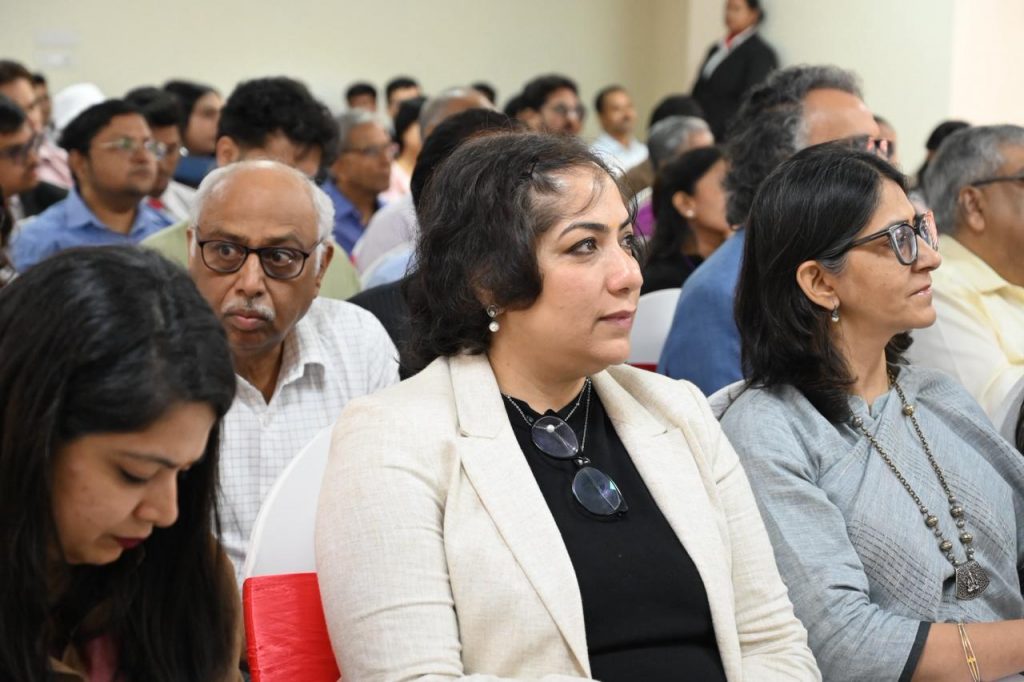
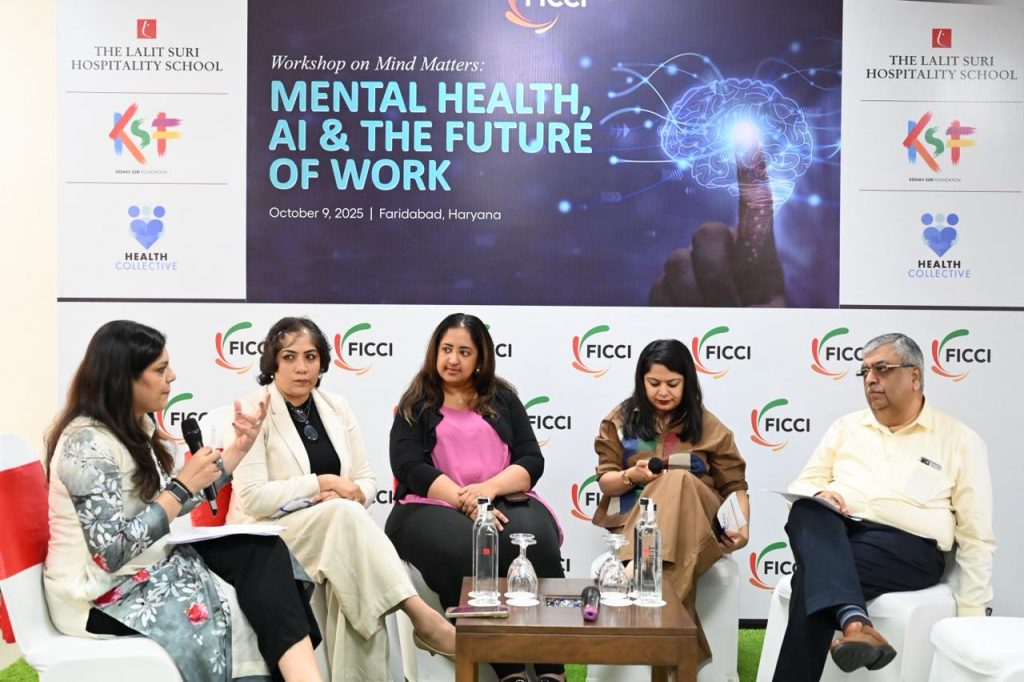
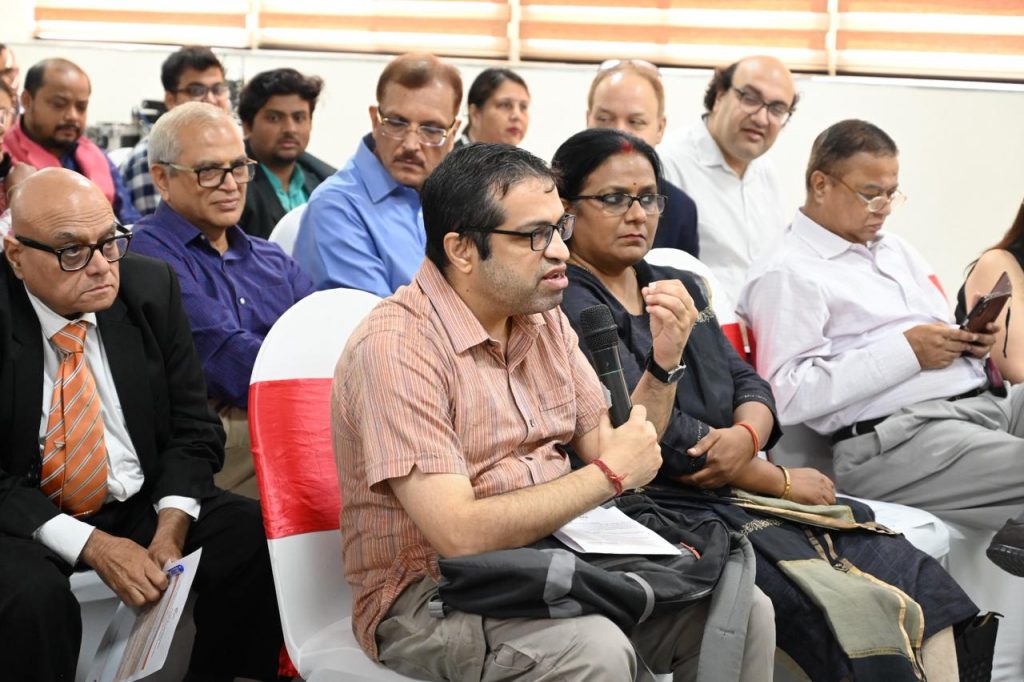
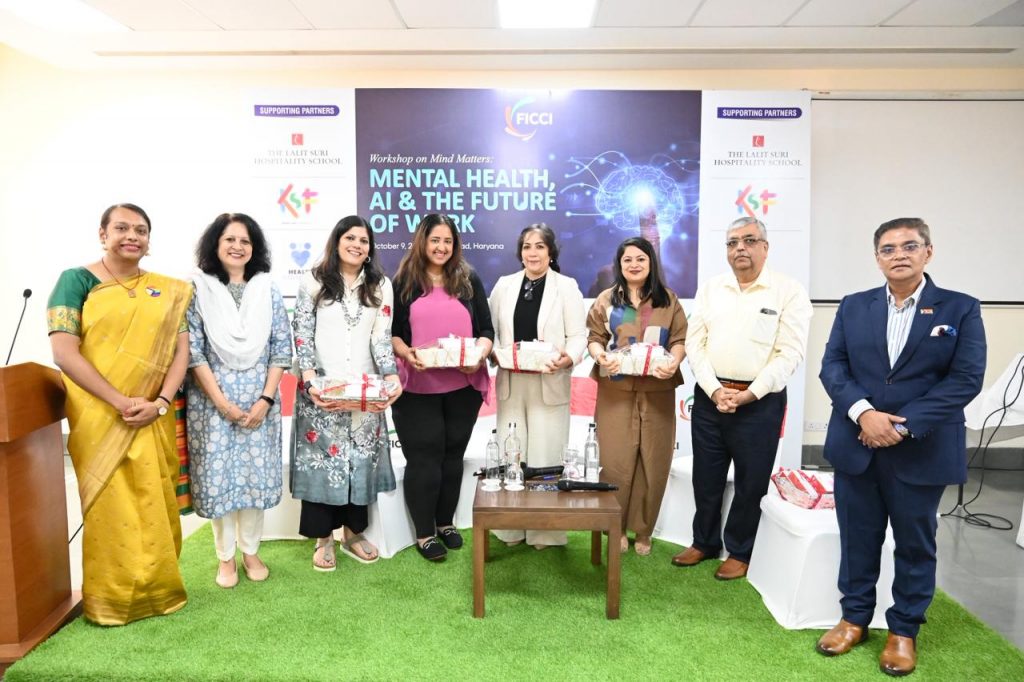
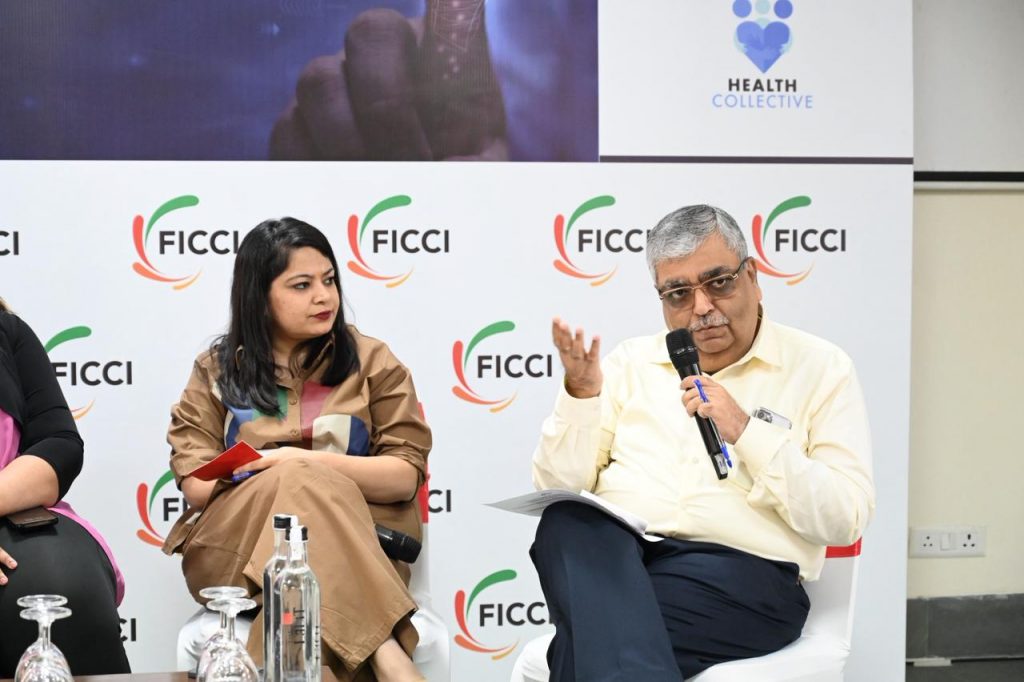
The workshop opened with remarks by Uma Seth, Assistant Secretary General, FICCI, who highlighted the importance of prioritizing mental well-being in today’s fast-changing work environments. She emphasised that as organisations adopt new technologies, it is critical to create frameworks that safeguard psychological safety and promote inclusive mental health practices.
Amrita Tripathi, Founder of The Health Collective, set the context by sharing insights on the growing importance of open conversations around mental health, digital well-being, and the need for collective responsibility in shaping compassionate workplaces. She said, “We all have mental health and we need to find a way to protect and promote our own mental health. We are living in an unprecedented time – the rise and rise of AI, and we need to pay attention to some of the unintended consequences of dependence, ranging from cognitive decline to even cases of AI psychosis.”
Panel 1: Mental Health and AI
In fact, the first panel, Mental Health & AI: Bold New Frontiers or Guardrails Please? explored the nuances we need to keep in mind given huge leaps forward in generative AI and uptake across populations. The session was moderated by Amrita Tripathi, with speakers including Smriti Joshi, Chief of Clinical Services and Operations at Wysa, Vaishnavi J, Founder and Principal of VYS, Aparajita Bharti, Co-Founder, The Quantum Hub & YLAC, and Dr. Achal Bhagat, Senior Consultant Psychiatrist, Apollo Hospitals and Chairperson, Saarthak.
The discussion emphasised the need for ethical frameworks and awareness to ensure technology acts as a supportive tool rather than a major stressor. The panellists also explored how young Indians are already turning to popular AI platforms for emotional support, and what the ramifications of this may be, citing the recent YKA-YLAC Youth Pulse Survey.
There clearly needs to be more of a focus on ethics, privacy, and a more widespread understanding of potential for real-world harm.
Follow-up questions on the single biggest concerns wrt GenAI yielded even more insight. Smriti Joshi, Chief of Clinical Services and Ops at Wysa says, “That not all Gen AI like Open AI or Gemini are built or designed for mental health support, not informed by clinicians or people with mental health needs. They offer advice but expect users to ask the right questions, which means that if I am not self-aware, or if I can’t ask the right questions, the conversation can quickly shift into high risk scenarios.”
Note: (You can read more in this article in the Tribune by Amrita Tripathi including these quotes)
Dr Achal Bhagat, Senior Consultant Psychiatrist and Psychotherapist at Apollo and Chairperson, Saarthak goes further. “AI presents a pervasive mental health and psychosocial hazard. It is affecting all ages and all people. The impact is profound as it is gradually impacting the way we think about ourselves, about the future and about the world. There is an illusion of competency, there is co-authoring of our identity, the messy ambiguity and contradictions of human experiences is at the risk of being flattened by algorithmic synthetic assumptions about people. There is an invisibility of the dimensions of poverty, race, caste and unemployment. It could be seen as intellectual colonialism with countries like India being most affected.”
He goes on to say, “We need to develop a policy framework which has red alerts and yellow alerts built in. Lack of transparency, the promise of a continuous relationship and pretence of knowledge of lived experience are more important dangers in the present context than armies of robot soldiers or surveillance of people: for every documented suicide in the west there is going to a few hundred thousand people affected across all age groups whose life are changing irreversibly. No amount of automation, memes, or even noble prize winning proteinomics is going to rationalise the compounded impact on our society. So while I do not think we should stop using AI, AI is a ruthless “jugaad” read experimentation on human beings — it is a clear present danger and needs to be governed. I propose that we have pre launch audits from a mental health and psychosocial lens for technology as one step towards this governance. Just one question is enough: who will lose what?”
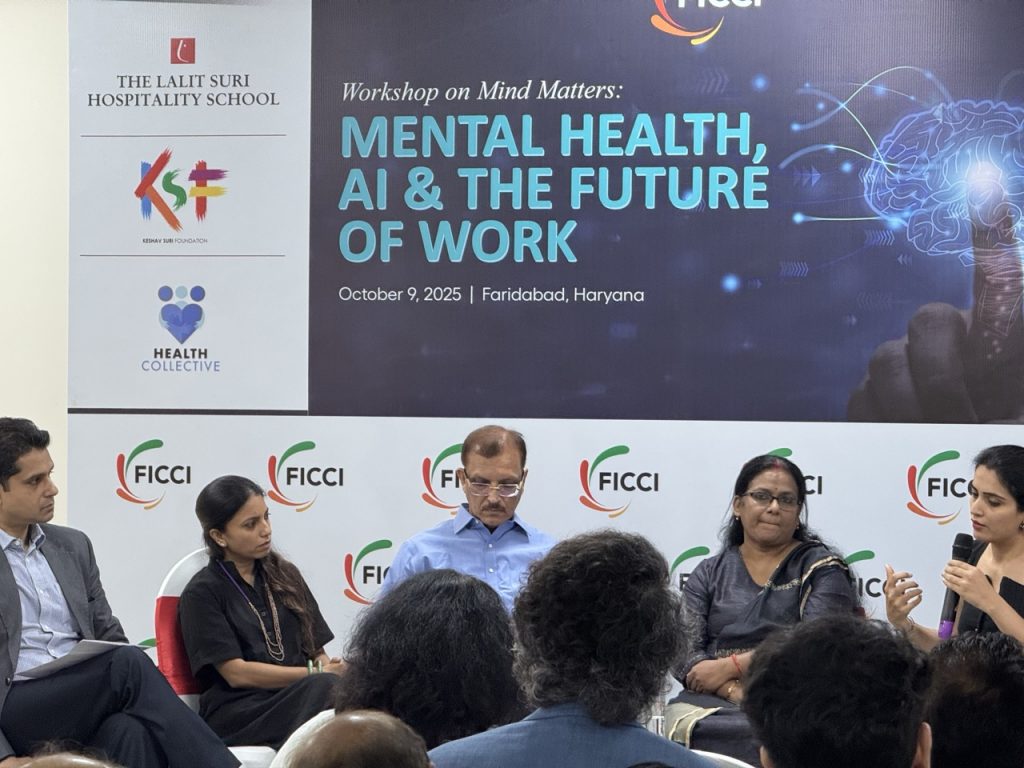
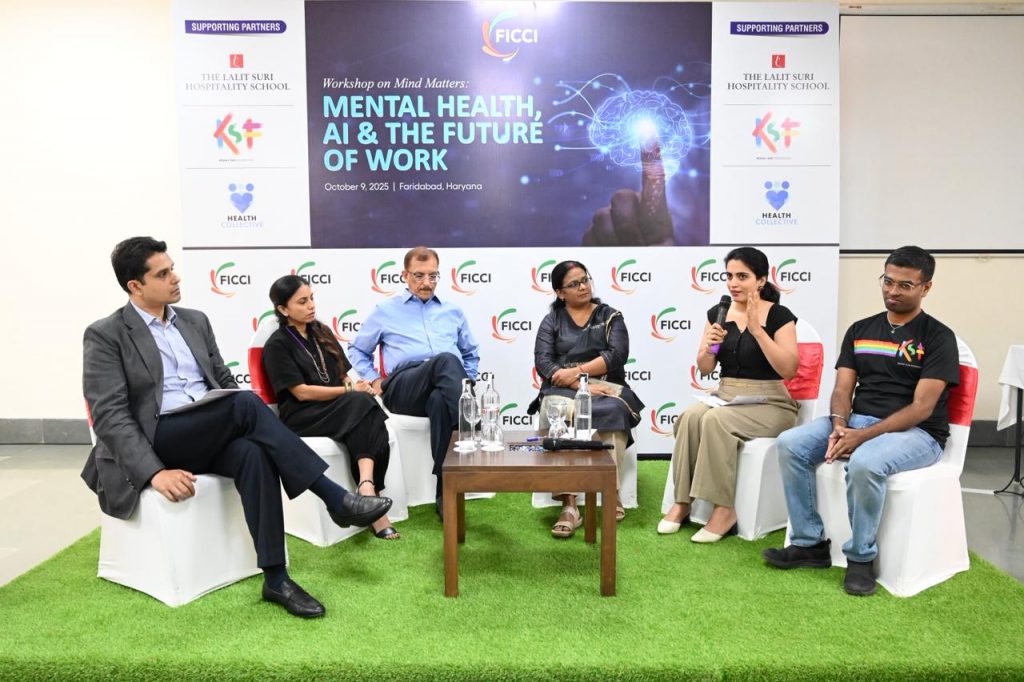
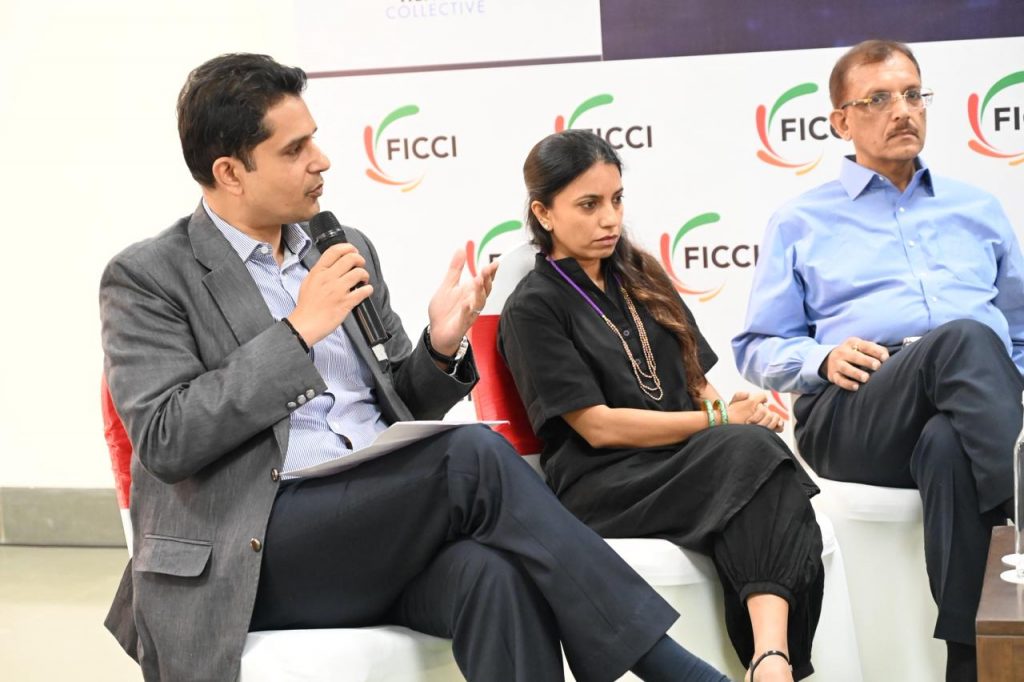
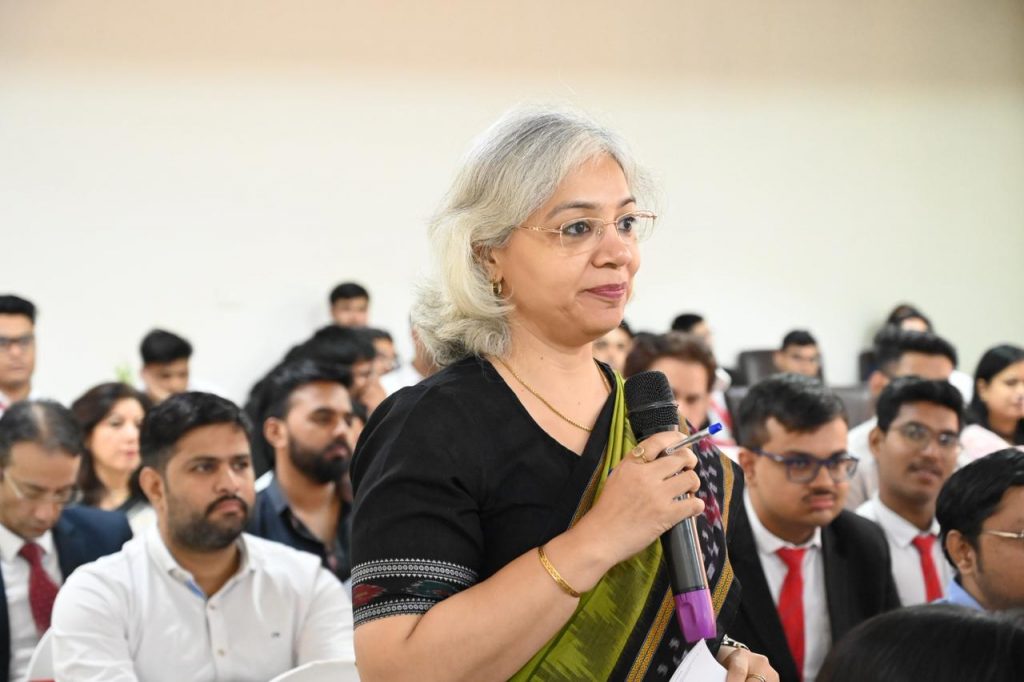
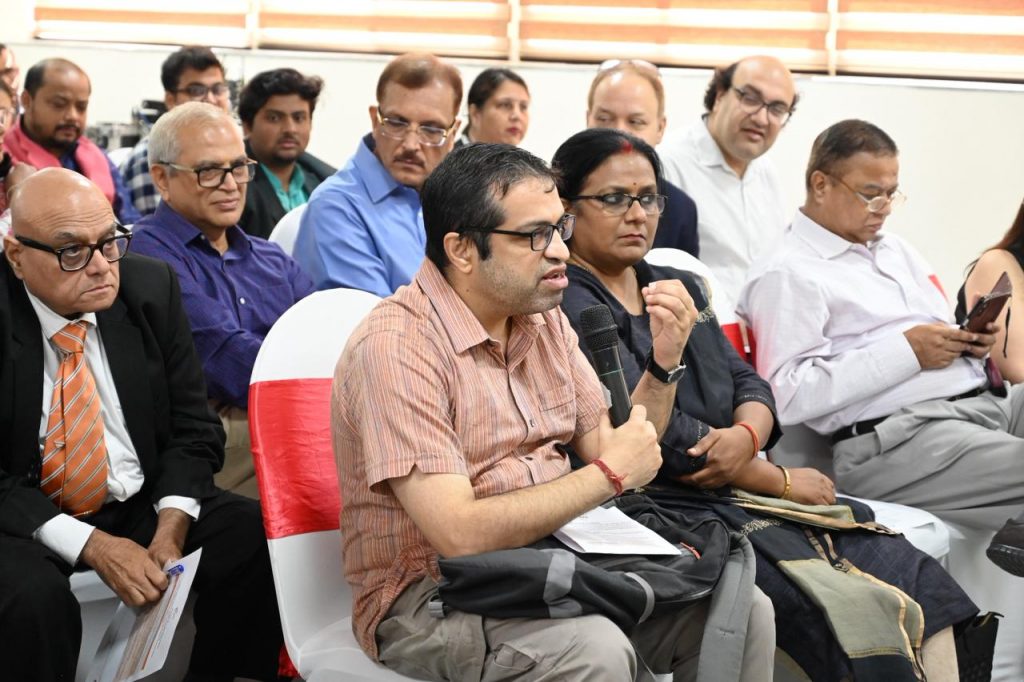
Panel 2: Mental Health and the Workplace
The second panel, Mental Health & The Workplace, addressed the rising challenges of burnout, digital fatigue, and workplace anxiety in the age of constant connectivity.
Moderated by Karan Thakur, Group Vice President – Corporate Affairs & Sustainability, Apollo Healthcare, the session featured Geetika Kwatra, Associate Vice President, HR, NatWest Group; Pallavi Kumari, Director – DE&I and CSR, AGS Health; Dr. Neatu Narang, Professor of Psychiatry, Amrita Hospital; Ratna Golaknath, Mental Health Rights and Development Professional; and Pranab Barui, Mental Health Counsellor, Keshav Suri Foundation.
Panellists discussed some of the biggest changes when it comes to Mental Health in the workplace over the past several years, including due to the Covid-19 pandemic and its vicissitudes. They weighed in on strategies for organisations and leaders to ensure they index on empathy at this time of great turbulence in the workforce, sharing some best practices to promote wellness and build resilience within organisations facing unprecedented change.
The panellists, while acknowledging the challenges being faced by organisations in the face of uncertain economic outlook and rapid change in technologies affecting the nature of work and jobs, highlighted the impactful interventions that organisations can undertake to manage this change. Purpose-led leadership, enabling organisational culture, psychological safety and resources to seek structured advice by employees were some of the critical-to-success aspects highlighted by the panel.
It’s critical as leaders to not forget our “human-ness” and also not take for granted that ‘wellness’ offices and programmes are effective without checking in and aiming to be ever more-inclusive.
Thakur while reflecting on some of the discussion points highlights, “As the world adapts to change, the panel informed the audience on the importance of human interaction and empathy within an organisations’ workforce and leadership to successfully navigate the current times.”
Questions from participants included concerns around the need for regulatory oversight and frameworks to keep in mind for employee wellness and mental health support programmes.

